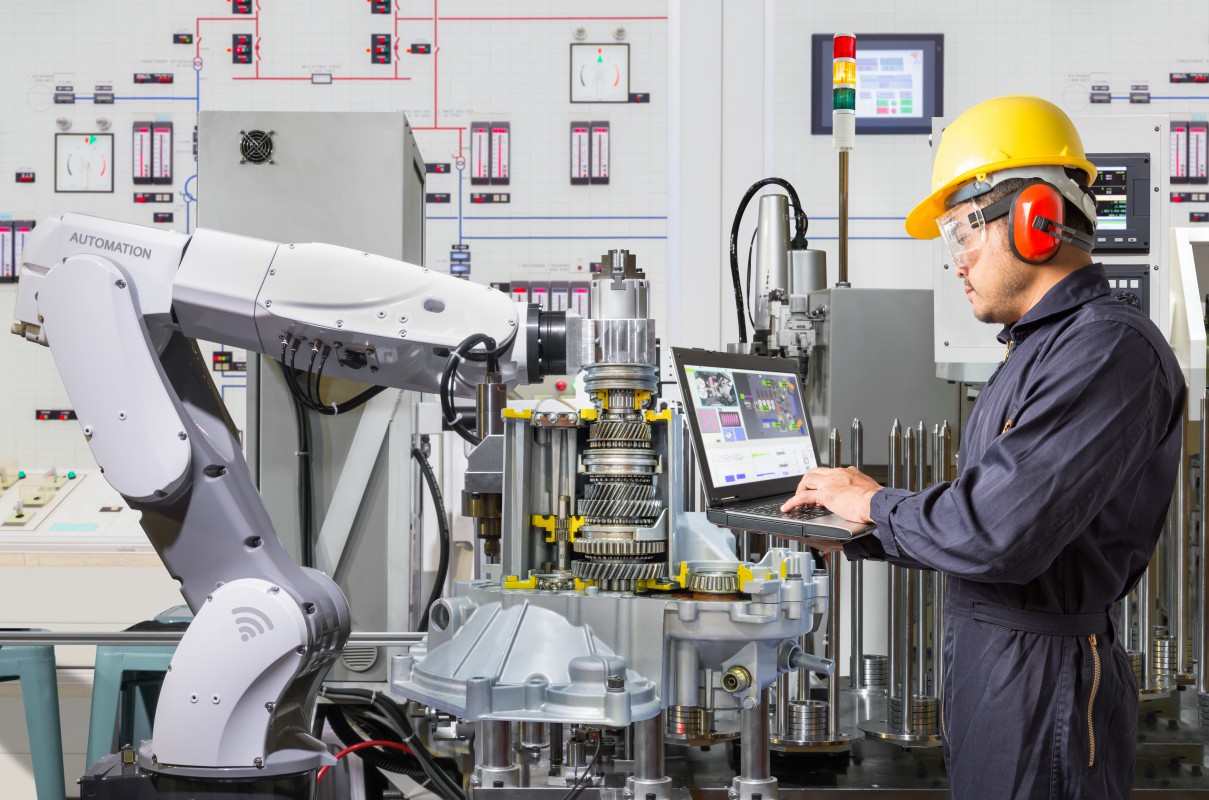- About us
- What we do
- Careers
- Investors
- Insights
- Client portal
What impact will AI & Robots have on the UK automotive industry?

Current estimates suggest computers are doubling in capability every twelve to eighteen months which means in 10 years’ time they will be 1,000 times better than they are today. Truly exponential development.
The automotive industry has always been at the cutting edge of new technology, and once again is showing that it will be setting the pace as it embraces and shapes new applications for the robotic and artificial intelligence (AI) products that are currently emerging.
Recent high profile crossovers from the technology sector into the automotive space illustrate this from a product perspective; Intel’s acquisition of Mobileye and Google’s foray into launching a self-driving car being just two examples.
Technological advances are also benefiting the manufacturing process. Whilst robots in manufacturing are not new - it’s almost sixty years since the first robot was unveiled by General Motors plant in New Jersey – their use is growing and today there are over 3 million industrial robots in action globally. A staggering 38% of these are deployed in the automotive sector. Furthermore, the International Federation of Robots predicts that automotive manufacturers alone will increase their robotic workforce by another 20% in just the next three years.
But whilst it’s the robots that tend to capture the imagination, the technology that has the potential to really ignite the newest industrial revolution is AI. Every minute, more and more data is being captured and fed into the latest software, improving the ability for AI systems to replicate decisions currently being made by human workers. When deployed effectively, they are able to process thousands of decisions almost instantaneously, based on far more information than their human counterpart could ever take into account with no room for human error and without the need to rest. And the applications could be limitless.
Pretty stark reading, particularly for the 800,000 plus people currently working in the automotive sector in the UK.
Robots vs humans
With the pressure on manufacturing businesses to reduce their labour and overhead costs, it is inevitable that jobs will be lost to technological redundancy. The Guardian recently reported that as many as 10 million jobs could vanish in the UK in the next two decades because of this.
However, taking a look across the pond, it seems it is unlikely to be as swift or devastating for the workforce as might be expected.
In a recent article Forbes compared automotive manufacturers in the US, and their relative performance since introducing industrial robots to their production lines. They found that over reliance on robots over humans actually saw a drop off in efficiency and an increase in waste and down time.
It seems there is a sweet spot. A tipping point where using robots for too many tasks limits the adaptability and effectiveness of a business. And this point currently sits as low as an 8% reduction in workforce. Why? Humans are adaptable, and can be redeployed to a slightly different task on a production line almost instantaneously. A robot may take weeks to be reprogrammed for the same small change.
So is it all doom and gloom? It doesn’t seem so. But it is likely that as AI improves beyond recognition, and its full potential is realised, the impact will be greater. In these instances, employers will of course have a responsibility to take care of impacted workers, redeploying them where possible, and supporting outplacement programmes if necessary. But in the current market, do these steps go far enough?
The changing labour landscape
Short-term thinking has led to a candidate market that is extremely short of STEM skilled candidates. Rather than addressing this shortage, the focus of employers and recruiters alike has only been on filling their immediate requirements. This has driven up pay rates, caused fierce domestic competition for the best talent and led to an over reliance on importing skilled labour from abroad. The overall effect of this has been a weakening of the industry when compared to the global market, and a skills shortage that is hurting businesses across the board. With the additional pressures of Brexit and whatever trade and labour deals are finally agreed upon , this situation is not about to resolve itself.
The UK automotive industry will inevitably be hit by these developments and unemployment rates may rise as a consequence. But the impending revolution new technology creates represents an opportunity for change and businesses need to take action soon to minimise the impact. The private sector will be instrumental in solving the issue and now more than ever recruitment solutions businesses are going to be integral in guiding their clients to this end.
Solutions could include using an alternative model for contingent labour including outsourcing packages of work or seeking consultancy on workforce planning to help plan and prioritise work and create the optimal resource mix. Total talent management solutions, which look at the whole lifecycle of talent including new talent (flexible and permanent), internal mobility, redeployment and development, skills gap analysis, workforce planning and even alumni support, will also help change how companies access the skilled candidates they need when they need them.
Businesses that have traditionally been competitors will need to come together to invest in retraining the workforce, but also to collaborate in how they maximise the productivity they can get from this population.
One thing’s for sure, a technological revolution is underway but it’s up to humans how much we embrace it.
Find out more about our outsourcing solutions, project delivery and consultancy services.

